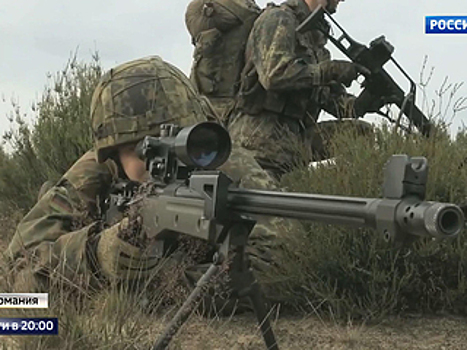Casting for NATO Training: In Search of Russian-Speaking Extras
Donbass and the Ukrainian crisis were discussed in Brussels during the first Russia-NATO board meeting this year. The alliance unexpectedly voiced their concern for Russia's recognition of LPR and DPR documents, as well as the circulation of the ruble in these Republics. Basically, the alliance exceeded their authority, and got involved in politics, the politics of another government. Meanwhile, Brussels announced their intention to get closer to Russia, which is nice, but it doesn't go with the alliance's latest initiative for hiring Russian-speaking extras for their operations training. Mikhail Antonov, the chief of our European bureau, is reporting about the scenarios for NATO rehearsals. An ad appeared on Berlin.de for hiring extras for American troop exercises on the Hohenfels training range. They're looking for 35 men and women, who will portray civilians in a combat zone. The job is for two weeks without days off, pay is 88.5€ — 120€ per day. A must-have requirement for applicants is fluency in English and German, but the ad states that the chances are higher for those who also speak Polish, Czech and especially Russian. Russian-speaking employees will probably get paid 120€ per day. As the ad states, the extras will allow to provide a more realistic setting for troops' preparation for overseas operations. This time "overseas" means "in Russia." This isn't the first such training course on the Hohenfels training range. That's where Americans trained to communicate with Afghan civilians. According to the contract, it's forbidden to leave the range territory during training. Personal communication devices and computers are not allowed. A full isolation regime. Only once, a scientific show "Galileo" was given limited access to film. For one day the crew followed the extras, who had attached indicators that showed whether the civilian was injured or killed during combat. But this entertainment show portrayed this program as a twisted adventure. But in reality it's way tougher. They get up at 5, eat at 6, and begin at 7. They eat combat rations (MREs) during the day. Those who participated in these events in the past, share them as the most unpleasant experiences. According to the extras, the living conditions were something between a prison and Bundeswehr. Personnel were held in contempt. One of the participants mentioned that the living quarters and bathroom accommodations were horrible. Another extra compared this job to slavery, and called their attitude towards the extras inhumane. The relationship model, offered by the American Military Command, is openly called exploitation by German employment experts. This gives us a clear idea of how Americans really cooperate with civilians during actual combat.
